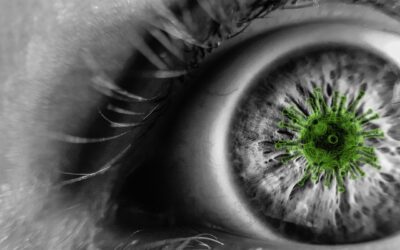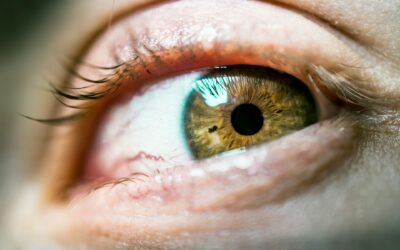Glaucoma is a chronic eye condition that is usually characterized by having consistently high eye pressure. However, there is one type of glaucoma that does not have high eye pressure. This type of glaucoma, called normal tension glaucoma, is thought to be due to changes in the cerebrospinal fluid pressure behind the eyes. Normal tension glaucoma is typically treated similarly to other types of glaucoma.
What is the Eye Pressure?
Eye pressure, or intraocular pressure, is the force that the fluid in the front of the eye pushes on the outside of the eye.
This pressure is applied to the very front of the eye and the very back of the eye.
Intraocular pressure is measured using a technique called tonometry. This can involve using a dye and probe to measure the force or using the air puff test.
Normal eye pressure is in the range between ten and twenty, anything higher is considered to be elevated.
What Causes Glaucoma?
Glaucoma is caused when damage occurs to the optic nerve.
The optic nerve is responsible for sending information from the eye to the brain to create vision.
This damage occurs due to excessive force being placed on the optic nerve.
Usually, this is due to the eye pressure being elevated, but it can also occur when the cerebrospinal fluid pressure is abnormally low.
What are the Changes from Glaucoma?
All glaucoma, including normal tension glaucoma, can cause damage to the nerve tissue and lead to visual field defects.
Glaucoma is a peripheral condition and it does not usually affect the center of vision until the later stages of the condition.
Symptoms may include difficulty seeing objects in the side vision, people or things appearing seemingly out of nowhere, or difficulty with mobility in unfamiliar areas.
How is Normal Tension Glaucoma Different than Regular Glaucoma?
Aside from the different mechanisms causing damage to the optic nerve, normal tension glaucoma is nearly identical to primary open-angle glaucoma.
In normal-tension glaucoma, the pressure is within the normal range during all forms of testing.
Normal tension glaucoma may also have a vascular component that makes individuals with sleep apnea more likely to be affected.
How is Normal Tension Glaucoma Diagnosed?
Since the eye pressure is within the normal range, normal tension glaucoma is diagnosed using other contributing factors and additional testing.
The optic nerve may appear to show signs of change from glaucoma when viewed in an eye exam.
If normal tension glaucoma is suspected, additional testing including laser scans (OCT) and peripheral vision tests can be used to identify if damage has occurred.
If there are signs of glaucoma and the pressure is in the normal range, normal tension glaucoma can be diagnosed.
How is Normal Tension Glaucoma Treated?
Like other types of glaucoma, normal tension glaucoma is treated using eye drops to lower the eye pressure.
Even though the eye pressure is within the normal range, lowering the eye pressure is the only way to reduce the progression of damage from glaucoma.
Lowering the eye pressure is done more cautiously in normal tension glaucoma to avoid the pressure getting too low.




